Here are some tips to help you regroup and get back on track.
1. Relax & recharge
We know you’ve probably already done this, but if not, take the time you need to relax and recharge. Go on a run or to the gym; treat yourself to dinner at a restaurant you enjoy; spend a night in watching your favorite movie – whatever it may be, spend time doing something you enjoy! Getting your mind off of your problems for a couple of hours will leave you refreshed and prepared to aggressively tackle them.
2. Figure out why (to a point)
After taking some time and space to think, regroup and start investigating areas to improve.
- Take a quick look at our “what not to do” tips. Did you find yourself saying “umm…” much more than usual? Were there some awkward moments where it wasn’t clear who should be speaking? Did you drive the interview or was your interviewer leading you the whole time? Interrupt your interviewer at any point?
- Are you sure that your research was up to snuff? When you were asked about industry trends, or company-specific information, were you confident that your answers were well thought out and informed?
- If you went through case interviews, did you find yourself startled by a question?
- Other potential issues include the questions that you asked of your interviewer. Did you find yourself asking something generic or publicly available? Alternatively, was your question overly-targeted or niche?
- After thinking through these questions on your own, you may also want to get feedback from Career Services. Make sure to seek out the staff member focused on your specific industry (if there is one), as he or she will likely have a more detailed insight on the particular company or companies in question. Conducting an honest personal debrief of your interviews with all of these questions in mind might help you identify where you can make improvements next time.
- A special note re: following up with potential employers to get feedback: if you had a decent rapport with the people who did your interview, you may want to reach out to them directly and ask for feedback about what you could have done differently. That is completely appropriate and advised. However, many recruiters have mentioned that candidates do themselves a disservice if they follow-up repeatedly asking for more feedback. It leads them to question a candidate’s judgment (it can appear desperate), and may reduce your chances of success in full-time recruiting next fall.
3. Maintain relationships you developed
Do you feel you made some meaningful connections during the interview process? In addition to helping you identify why you may not have gotten this specific job, keeping up relationships with the folks you met during the process may help you to successfully land in that organization next year or even uncover other compelling opportunities. While this is especially true of candidates who made it to a company’s second round of interviews, our tips may apply to first-rounds too.
Make sure to stay in touch with people you built strong connections with. This equally includes partners and senior leaders, as well as employees who are only a year or two out from their own MBA. Note: if you’re not sure if the connection is strong, it was if they suggested that you reapply next year! Appropriate ways to reach out include:
- Dropping them an email to let them know where you’ll be during the summer once you secure your internship;
- If you are in the same city – emailing to see if they are available for coffee at some point this spring or summer;
- If you are in a different city – emailing them if you’re traveling to the city they’re in and asking to set up a coffee;
- Inviting them to speak at an industry event or otherwise get involved at school.
- Make a note in your calendar to send them a very brief update every three or four months of how things are going both in your internship and at school.
4. Be clear on Plan B
Many MBA students have ended up pursuing opportunities that were somewhat (or sometimes very) different than what they had planned on before they started school. We conducted a survey with our past clients and learned that 54% of them did not intern in their target industry or function. Some of the reasons why they did an internship in an industry or function different from what they initially planned on:
- Clients’ “Plan B” internships gave them the opportunity to try something new and live somewhere different;
- Clients had spent many years in their former industry, so they decided to switch it up;
- Clients wanted to round out their business experience in their internship by engaging in a role they hadn’t considered before school.
Some of the clients who received an internship in the industry and function they desired ended up disliking it! Look into firms and options that you have not considered before. Leverage our ProValues exercise to explore other options that might be right for you. Perhaps you’ll find that a different role is actually what you are really looking for!
5. Pitch your enthusiasm for Plan B
Once you identify Plan B, make sure that you can show recruiters that you are fully on board with it – come up with a pitch to show your enthusiasm. That means doing as much or more research than you did for Plan A. Plan B may have some exciting opportunities that you never would have considered before Plan A fell through!
